DjangoBooks.com
Welcome to our Community!
Categories
- 20K All Categories
- 1.1K General
- 485 Welcome
- 59 Archtop Eddy's Corner
- 146 CD, DVD, and Concert Reviews
- 385 FAQ
- 26 Gypsy Jazz Italia
- 27 Photos
- 209 Gypsy Picking
- 21 Unaccompanied Django
- 15 Pearl Django Play-Along Vol.1
- 17 Gypsy Fire
- 45 Gypsy Rhythm
- 1.4K Gypsy Jazz University - Get Educated
- 131 Gypsy Jazz 101
- 230 Repertoire
- 227 History
- 709 Technique
- 51 Licks and Patterns
- 6 Daniel Givone Manouche Guitare Method Users Group
- 20 Eddie Lang Club
- 1.3K Gypsy Jazz Gear
- 814 Guitars, Strings, Picks, Amps, Pickups and Other Accessories
- 465 Classifieds
- 52 Recording
- 63 Other Instruments
- 18 Violin
- 5 Mandolin
- 22 Accordion
- 7 Bass
- 11 Woodwinds
- 351 Gypsy Jazz Events
- 144 North America
- 112 Europe
- 95 International
In this Discussion
Who's Online (0)
Other European guitars
 ChrisMartin
Shellharbour NSW Australia✭✭ Dupont, Favino, Petrarca, Gitane, Hofner, Burns, Kremona Zornitsa, Fender, Epiphone
ChrisMartin
Shellharbour NSW Australia✭✭ Dupont, Favino, Petrarca, Gitane, Hofner, Burns, Kremona Zornitsa, Fender, Epiphone
There is a discussion going elsewhere about what makes the difference between a SelMac style GJ guitar and a Martin style flat top. Then there are the wonderful posts from Andy W starring his Sicilian wonders.
So maybe we need another place to dump the rest of the 'nearly-but-not-quite' guitars from around Europe. The oval hole Selmer 503 may be the most famous and is understandably one that many copies have been based on, but at the other end of the scale many gypsy players have been photographed down the years with what often look like cheap basic 12-fret non-cutaway guitars and these are surely the most commonly found historically, it may have been only when a gypsy player started earning real money (bars, dance halls, busking) that a 'proper' GJ guitar could be justified.
The luthiers we now recognise as the important 'names' from Paris were mostly from Italian roots, and most of those were from Sicily. Mainland Italy of course has a long tradition of luthiers and much of what they had handed down must have had an influence on the rest, but do any of you play Italian guitars for their own sake?
Add in to that, the history of the gypsy migration across Europe and the roots of the music handed down and it is not surprising to find other players with different guitars depending how far east you go. So surely there must have been many gypsy players in and around Germany playing German made guitars, and numerically the most common would probably be either the cheap parlor size models with a trapeze tailpiece and floating bridge - look up Hofner 522, but Hoyer or Framus also knocked out similar models in large numbers - or the bigger typical archtops. I have had a few myself, the Hofner Committee (I have had three down the last forty years) is one of the best made archtops and sounds great with 80/20 bronze strings but I never could get comfortable with the thick neck and and the size of the body, so they all went eventually.
Here is the last one I had:
Smaller German archtops still work well with the GJ style though, in fact the lesser models, smaller bodied with pressed laminated tops, seem to get closer to the GJ sound anyway.
WW2 dispersed what had been a thriving industry around Czechoslovakia and many of the craftsmen ended up in Eastern Germany but the skills were not lost even if the quality was downgraded a little. Surely many gypsies who found themselves on the wrong side of the 'Iron Curtain' must have been playing such guitars.
Elsewhere, in Russia the seven string was a popular choice, and of course the gypsy tribes that migrated along the south side of the Mediterranean helped create what became known as Flamenco in Spain which leads to totally different family of guitars.
But one has to wonder what was being played in eastern Europe on those strange Kremona and Orfeus guitars out of Bulgaria.
I have always been attracted to the odd and different and find experimenting with the less common can produce interesting sounds. Certainly, a lot of traditional gypsy music was passed down from those who traveled through Bulgaria, Hungary and Romania. Many a Csardas must have been bashed out on locally made instruments.
Anyway, to start the ball rolling here is the Kremona 'Mexico' model, top of the range for bling: Note that picture of the dancing couple on the lower bout is all precision cut inlay, not as it appears, a transfer print.
A slightly less flashy Kremona Zornitsa: Great sound with a set of Argies.
And a similar shape but much smaller Orfeus: With locally made pickup, I keep this one tuned to Open D.
So there must have been many gypsies throughout Europe playing on guitars other than what we now know as GJ guitars, and yes, I am aware of Oscar Aleman and Serge Camps using resonator guitars, and Lulo Reinhardt's nylon strung hybrid - coincidentally also made by Kremona - but does anyone have any more to share?

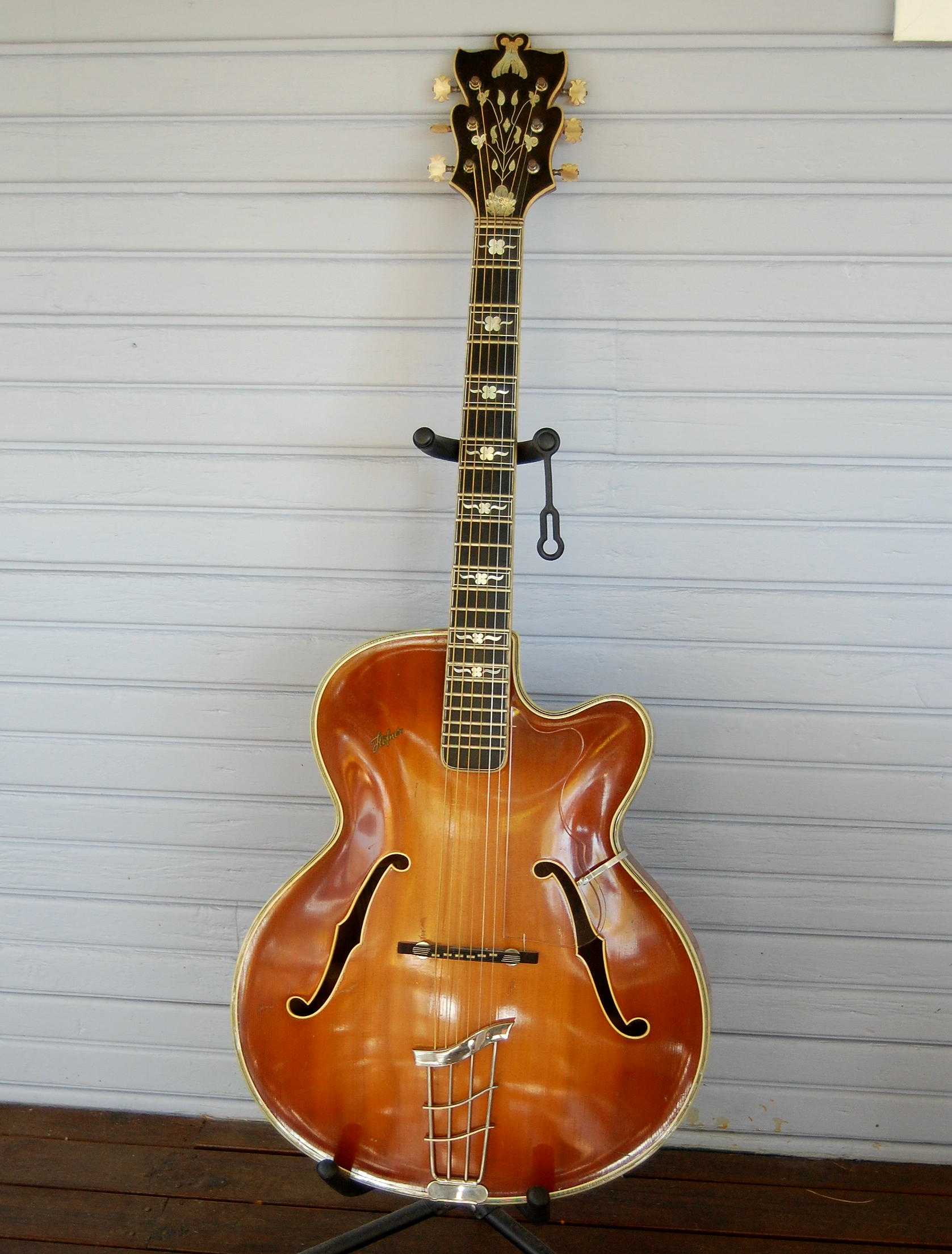
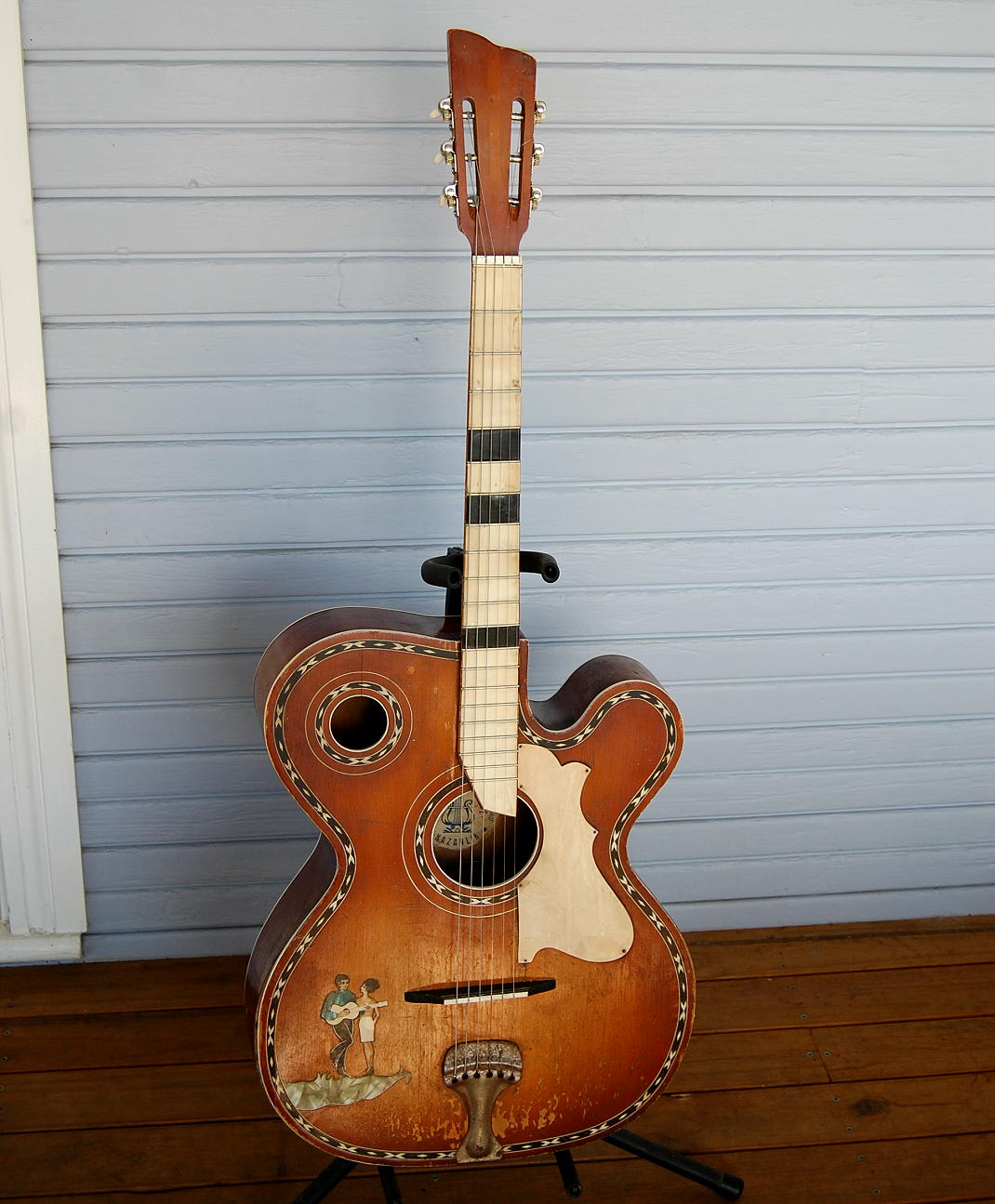
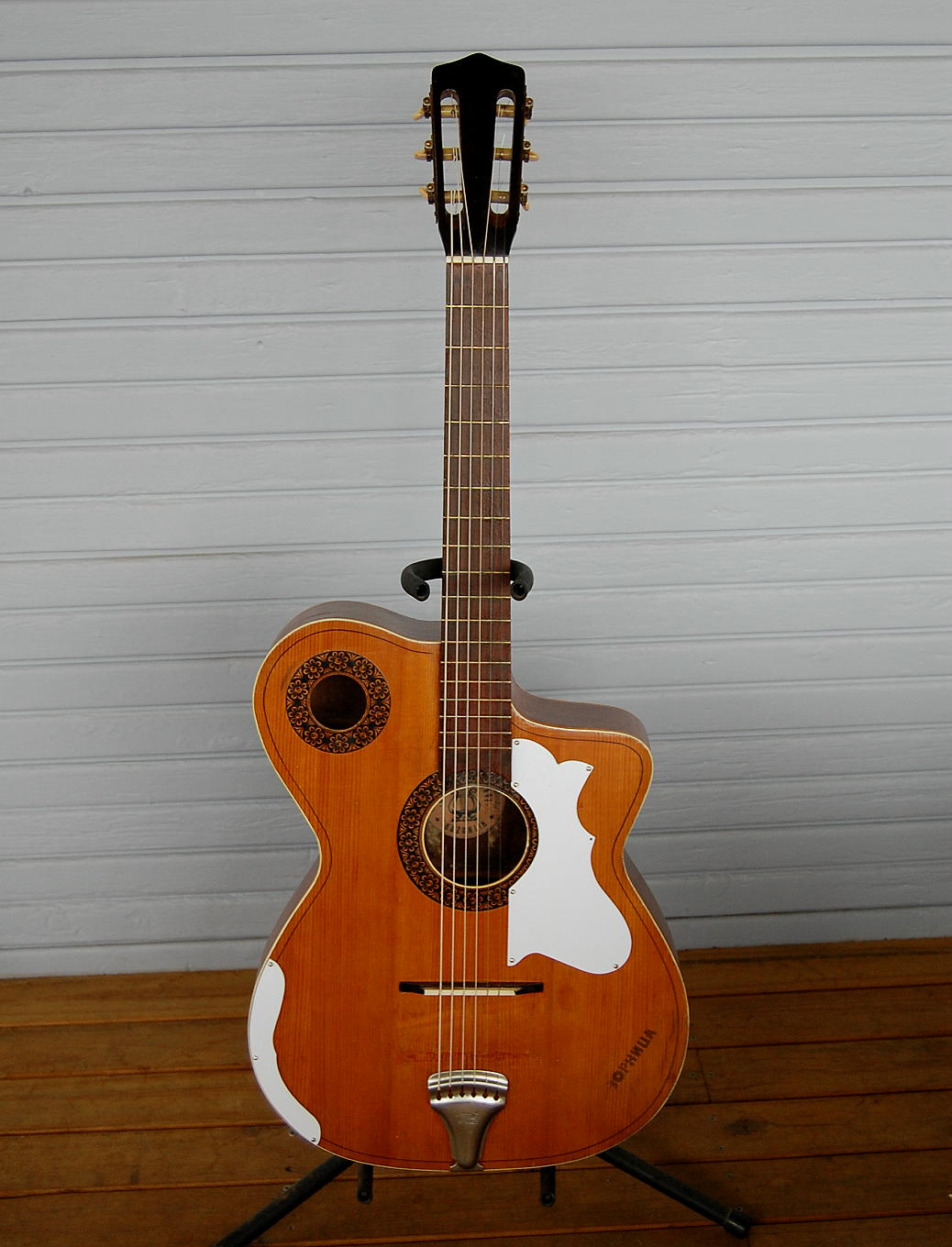
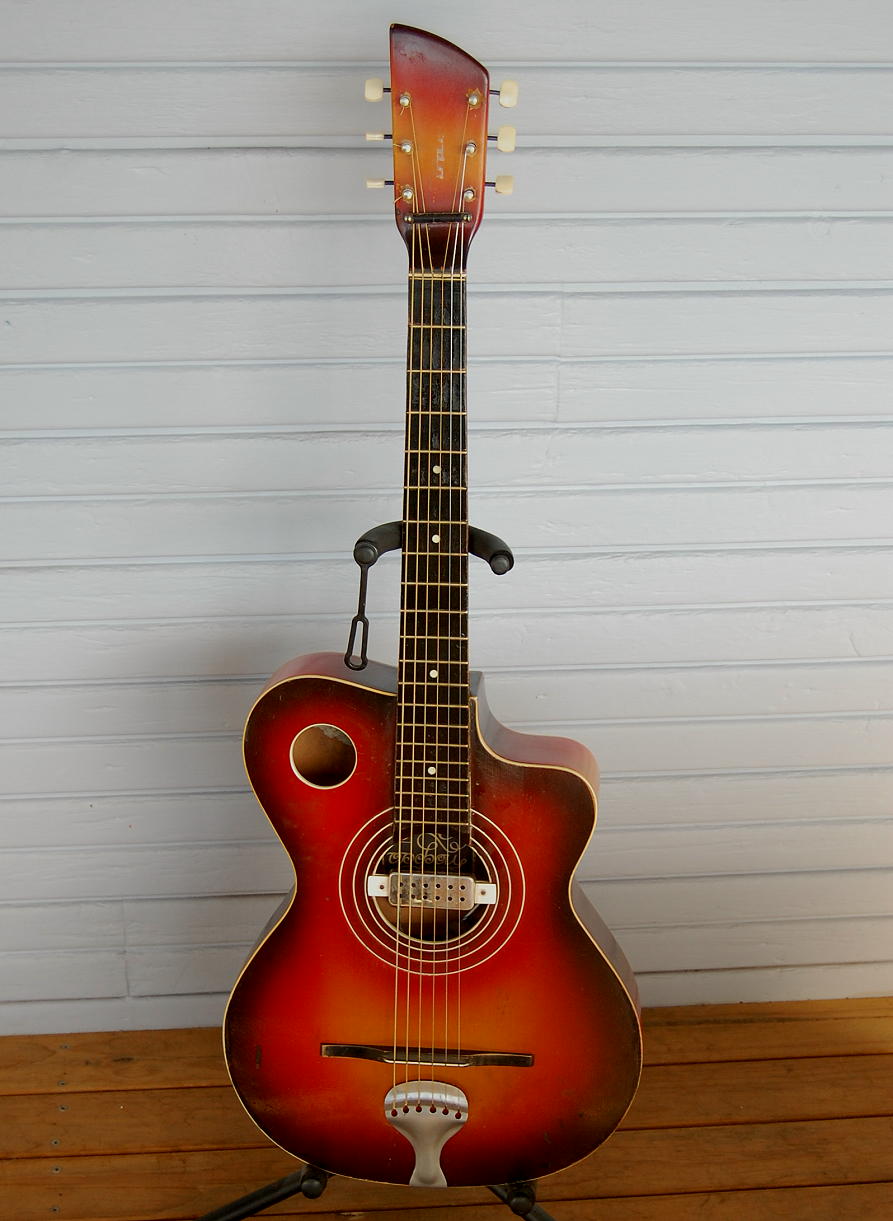


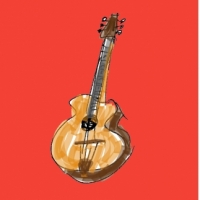
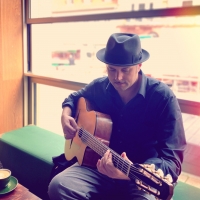
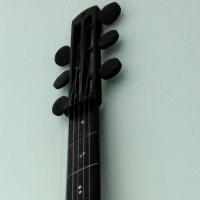
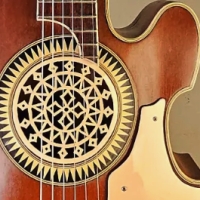








Comments
Love seeing some of these "others." Thanks for sharing.
Found this picture on the internet. Pretty sure one of these was my very first guitar. Darn thing sounded good. People would hear me play it or play it themselves and comment "how does this thing sound so good?", happened more than once. Not much in the way of making guitars in former Yugoslavia, people would usually smuggle them from Germany or Austria because customs fee would be as much as the instrument itself. But what was there, overall quality was decent. This one was Grič, sub-brand of Muzička Naklada.
Found informative and interesting videos these days, but what a pity: don't understand russian.
but what a pity: don't understand russian.
Willie, you can get the close captions translated to (slightly mangled) English.
He relates how he got the Kremona in his youth, learned how to play on it, lost track of it and recently got it back.
🎸Thank you, Bill!
As with any online translators some words have more than one meaning so it can make for some curious reading..
FWIW in the second Youtube link Alexander refers to that Kremona as a 'Lightning' model, but then says he does not know Bulgarian. Interestingly, or simply out of curiosity, I looked up the script on the lower bout of mine which reads - зорница - which in our alphabet reads as Zornitsa and the Google translator offers us the choice of dawn, daystar, morning star, phosphor or even lucifer; so I can see how he guessed it meant lightning too.
Just found out that Kremona is building a signature model for Lulo Reinhardt. They should get into Selmer style guitars. Scot mentioned Vadim Kolpakov in the other thread and I see he's also playing a Kremona guitar. They have a wide range of guitars (but not Selmer style) and a US based office
These are nylon string guitars. Interesting, but other than the neck dimensions and 12 fret vs. 14 fret models, it just depends on how they sound.
Yes, I did mention the Lulo Reinhardt model in the first post, but the rest of their range seems to be nylon string 'classical' style. I am sure they would have the capability to produce GJ guitars, but why would they, there are already enough makers out there fighting for a share of a relatively limited market. The modern Kremona guitars do have a good reputation from what I have read (it was not always so in the 'Soviet' years) and they do have world-wide distribution, which all makes me wonder if there might be any interest in a new version of the 'Zornitsa' shape as a large steel-string acoustic with a twist, it would be something new in a world of lookalike dreadnoughts.
SP-1 pickup for steel-strung guitars looks interesting at $100 - pity there's no demo video.
I'm also interested by the 7-string "Fiesta CW-7", which has some nice video clips on its page.